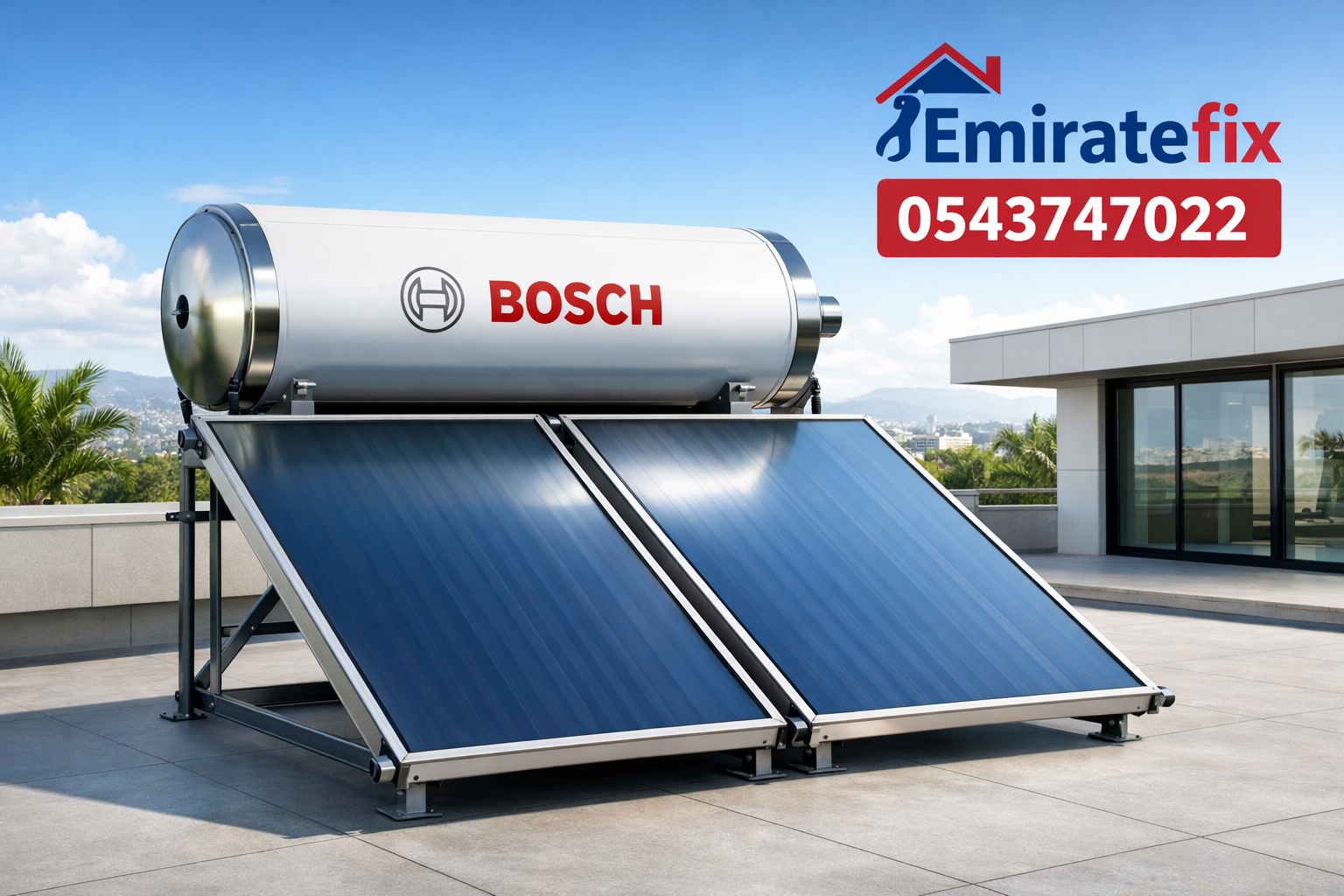
الاسئله الشائعه
Water Heater Repair in Dubai – Central and Solar System
Expert Water Heater Repair in Dubai 2026
TL;DR (Too Long; Didn’t Read)
- EmirateFix Center provides 24/7 emergency water heater repair services in Dubai, guaranteeing a rapid response (often within 30, 45 minutes) and offering a Same-Day Repair Guarantee for critical faults like leaks or total system failure.
- Certified technicians are experts in fixing all major system types, including electric storage, instant (tankless), central, and solar water heaters. They specialize in resolving common issues such as No hot water, electrical faults, and mineral/sediment buildup.
- Services ensure quality and longevity by using advanced diagnostics and genuine spare parts for permanent fixes. They also offer essential annual maintenance, descaling for hard water problems, and mandatory safety checks (e.g., Carbon Monoxide Testing).
- The company handles comprehensive service needs, ranging from routine Geyser maintenance Dubai to full system upgrades and professional water heater installation.
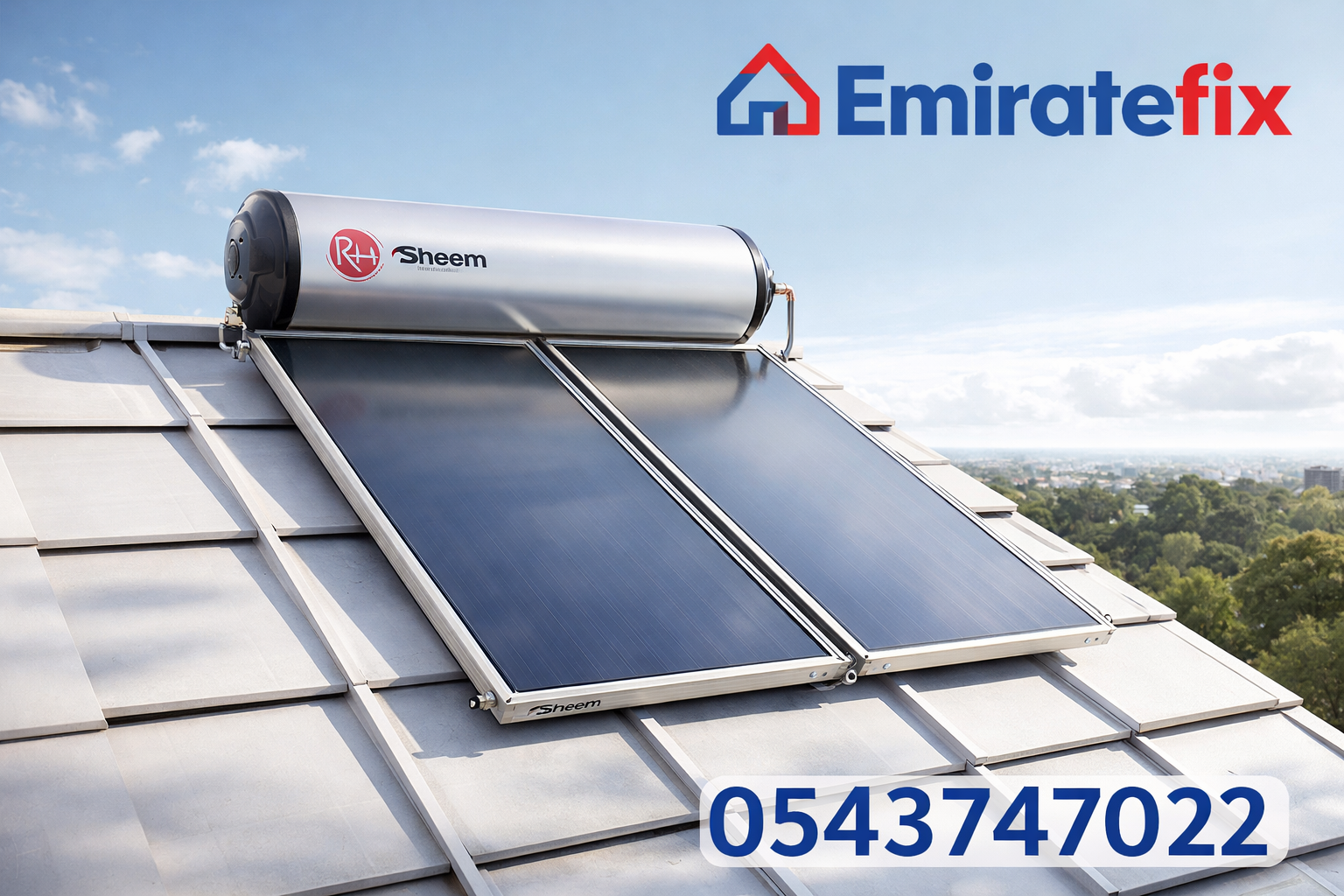
Ensuring a consistent supply of hot water is vital for comfort and daily function in Dubai, United Arab Emirates. When your Water Heater or Geyser fails, you need immediate, reliable service. EmirateFix Center (0543747022, info@emiratefix.com) specializes in providing comprehensive hot water heater repair Dubai services, ensuring rapid resolution for both residential and commercial properties.
Our goal is simple: to deliver high-quality water heater fixing Dubai with a professional Same-Day Repair Guarantee. We cover everything from minor water heater maintenance Dubai to full Emergency replacement of your system.
If you are experiencing a hot water problem, trust our Certified technician team for Expert service. We are dedicated to providing fast and effective Emergency water heater repair across Dubai, ensuring you never face a sudden cold shower.
1. Emergency Water Heater Repair Services in Dubai (24/7 Availability)
When a Water Heater fails catastrophically, time is critical. A leaking hot water cylinder or total system shutdown requires immediate attention to prevent property damage and major inconvenience in Dubai.
EmirateFix Center provides essential Emergency water heater repair services designed for rapid response. We ensure minimal disruption and swift resolution for any critical hot water problem you face.
Immediate Response for Crisis Situations
We understand that emergencies do not adhere to business hours. Our dedicated Emergency Service Provision (24-Hour Availability) ensures you receive expert help around the clock.
When you call, our certified Technician Dubai teams are deployed immediately. We guarantee a quick response, often arriving at your location within 30 to 45 minutes of your initial contact, offering genuine 24/7 services.
This rapid action is crucial for mitigating risks associated with a major leak or sudden electrical faults. We prioritize Same day repair to restore comfort immediately.
Fixing the “No Hot Water” Crisis and Electrical Faults
The most common emergency call is for No hot water. This signals a critical fault, often related to the heating element, the Thermostat, or a failure within the Hot Water Cylinder.
Our experts specialize in the immediate diagnosis of these critical faults. We handle complex Electrical Fault Troubleshooting (Water Heater) efficiently, ensuring your system is safe and functional.
Whether you require storage water heater repair Dubai or instant water heater repair Dubai, our team provides precise, expert service for a permanent fix and effective water heater fixing.
We ensure that every emergency service includes a thorough check-up, addressing the root cause of the hot water problem and preventing future failures.
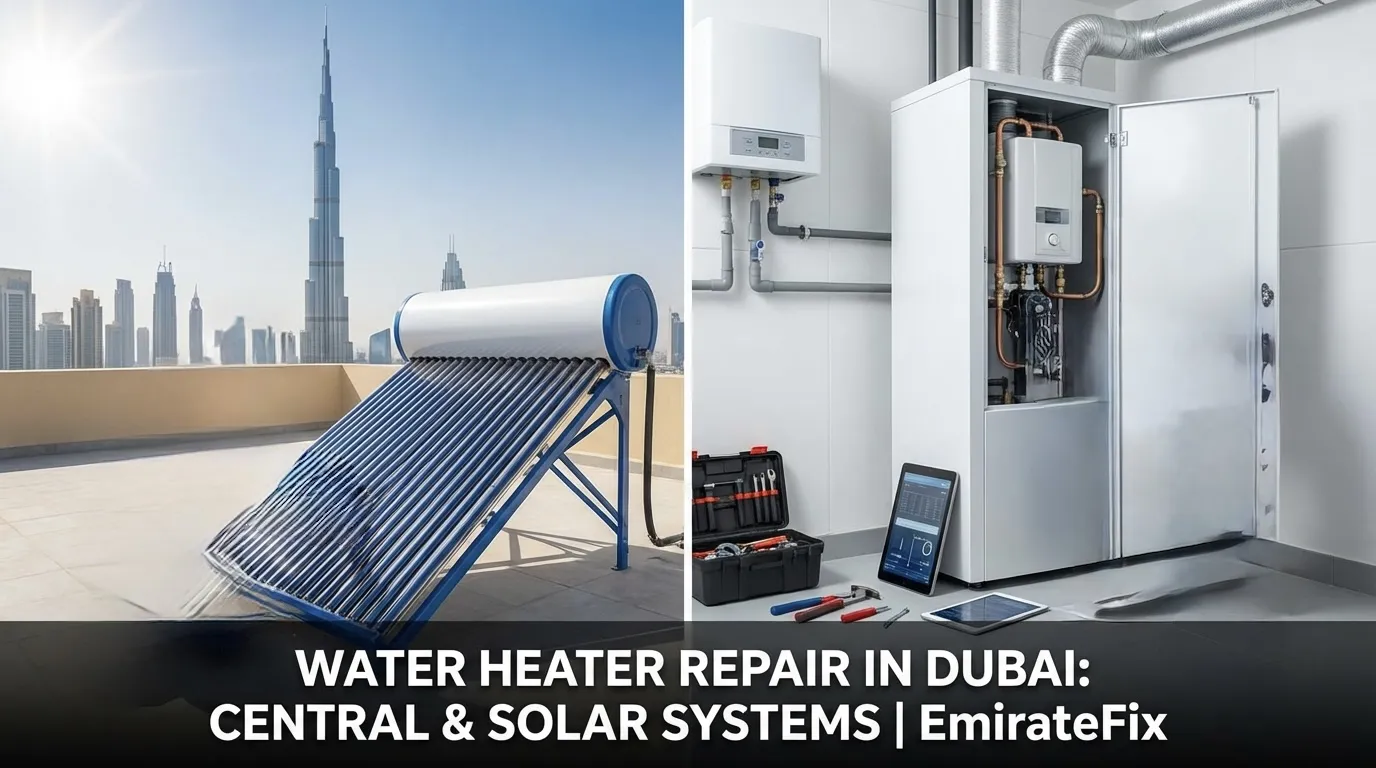
2. Common Hot Water Heater Problems We Solve
When you require water heater repair in Dubai, understanding the root cause is crucial. The unique subtropical climate and water hardness in the United Arab Emirates place specific stress on your heating system.
EmirateFix Center provides Expert service and rapid diagnosis for all types of common failures. Our Certified technician teams specialize in resolving issues affecting electric storage and instant water heaters across Dubai.
Diagnosis of Pipeline Leakage and Leaking Hot Water Cylinders
A Leaking hot water cylinder requires immediate attention. If you see pooling water around your unit, you need Emergency repair to prevent costly property damage in Dubai.
We specialize in the precise Diagnosis of Pipeline Leakage. This includes identifying faults in the pressure relief valve, corrosion issues, or failed pipe joints.
Our Technician Dubai experts use advanced diagnostic tools to pinpoint the exact source quickly, ensuring effective water heater fixing and preventing further energy waste.
Electrical Fault Troubleshooting and No Hot Water Issues
The most frequent call for electric water heater repair Dubai is often related to a lack of heat, resulting in No hot water. This usually stems from component failure within the system.
We provide comprehensive Electrical Fault Troubleshooting (Water Heater). This service addresses faulty wiring, tripped circuit breakers, and burnt-out heating elements or contactors.
Critical components like the Thermostat often fail, leading to inconsistent heating or total shutdown. Our Certified technician performs safety checks and ensures high-voltage units are operating efficiently and safely.
Resolution of Sediment and Water Hardness Problems
Hard water in Dubai causes rapid mineral and lime scale buildup, known as sediment. This accumulation drastically reduces the efficiency and lifespan of your Hot Water Cylinder or Geyser.
Sediment buildup causes strange banging or popping noises and leads to poor performance, requiring more energy to heat the water and causing a severe hot water problem.
We specialize in the comprehensive Resolution of Sediment and Water Hardness Problems through professional flushing and descaling. This service is vital for effective storage water heater repair Dubai and maximizing energy output.
Correction of Hot Water Flow Restriction
If you experience weak pressure or restricted flow from your hot water taps, you may need Hot Water Flow Restriction Correction. This is often caused by debris or mineral buildup in the pipes or the unit itself.
Our Expert service includes clearing blockages in the outlet lines and ensuring optimal water pressure is restored throughout your villa or apartment in Dubai.
Addressing flow restriction is a key part of effective Geyser repair Dubai, ensuring your system delivers hot water efficiently.
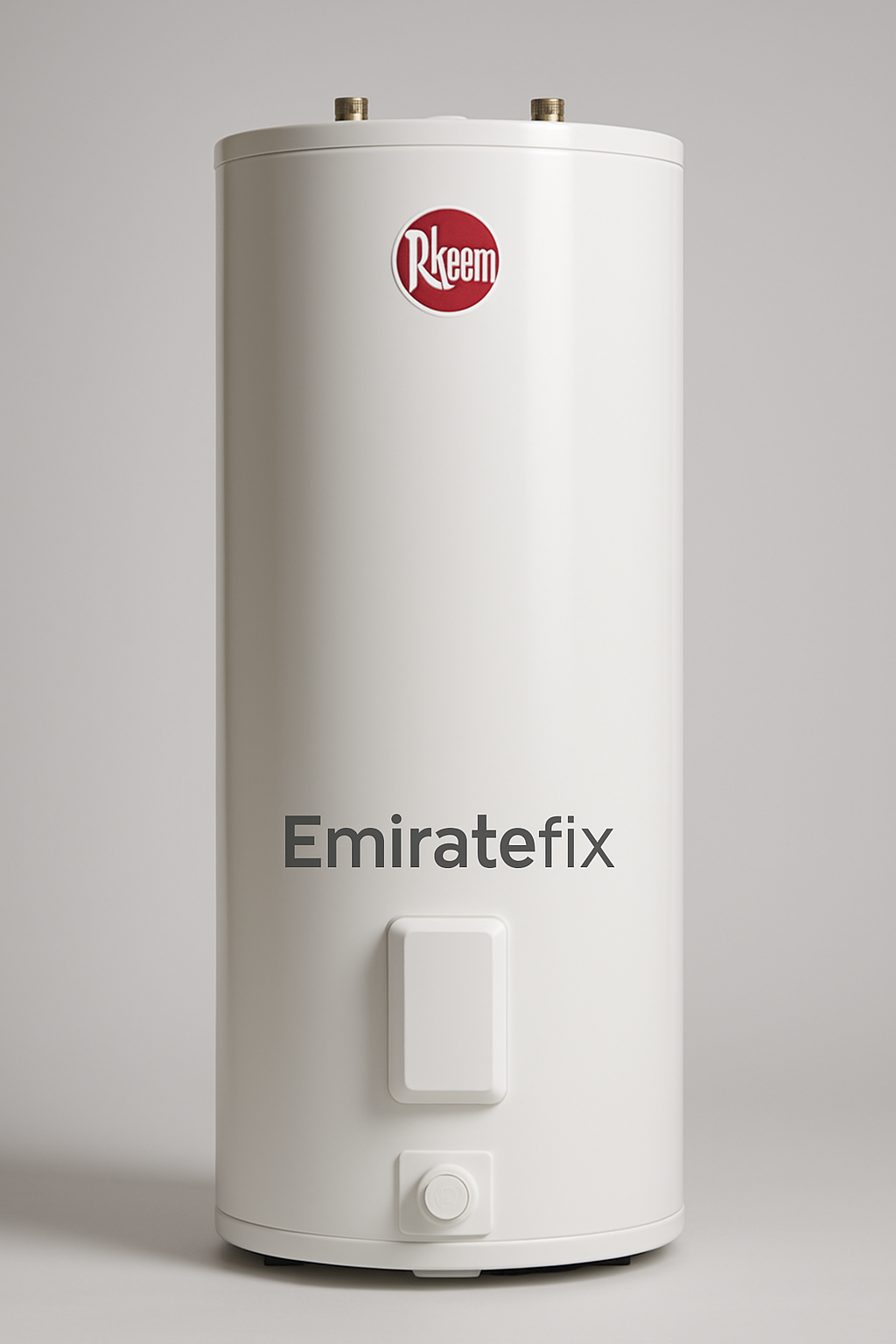
3. Comprehensive Geyser Repair and Maintenance Services
EmirateFix Center provides specialized 24/7 services for all your hot water needs in Dubai. Whether you require expert Geyser repair Dubai or proactive Geyser maintenance Dubai, we offer tailored solutions specific to your system.
Our Certified technician teams possess the Professional Certification and Expertise necessary to handle every type of heating system, ensuring rapid and reliable hot water service across the United Arab Emirates.
Specialized Water Heater Repair Dubai
We understand that properties across Dubai utilize diverse heating solutions. Our Expert service covers everything from compact residential units to large commercial systems, including complex central water heater repair Dubai.
We specialize in repairing systems in large properties, offering dedicated villa water heater repair Dubai and advanced diagnostics for modern solar water heater repair Dubai.
Storage Water Heater and Hot Water Cylinder Repair
Storage tanks, commonly known as the Hot Water Cylinder, are frequently found across Dubai. We address critical failures affecting these units, including complete thermostat malfunction and heating element burnouts.
Our services resolve crucial issues like leaking hot water and internal corrosion. We provide comprehensive repair, replacement, flushing, and inspection of internal components to ensure system integrity.
Instant Water Heater Fixing and Tankless Service
For modern tankless or instant water heaters, we focus on high-tech fault resolution. Our Technician Dubai staff are experts in diagnosing flow sensor faults and resolving pressure issues.
We perform specialized Hot water flow restriction correction to restore optimal performance. We utilize advanced diagnostic technology to ensure efficient water heater fixing and error code resolution, providing a quick fix for your no hot water problems.
Central System Repair and System Replacement Services
Large commercial and centralized heating systems require specialized knowledge. We provide advanced Diagnosis of Pipeline Leakage and expert service for circulation pump failure.
When repair is impractical or unsafe, we offer complete System Replacement Services for centralized boilers and industrial Water Heater setups. We ensure high-quality Water heater installation and replacement across Dubai.
Essential Water Heater Maintenance Dubai
Routine Water heater maintenance Dubai is crucial for safety and maximizing unit lifespan. Regular inspection prevents unexpected breakdowns and costly Emergency water heater calls.
Our comprehensive service checks critical components like pressure relief valves and performs essential descaling for the Resolution of Sediment and Water Hardness Problems common in the region.
For systems using gas, we strictly perform mandatory Carbon monoxide safety testing. This proactive maintenance ensures safety, saves money, and guarantees the longevity of your heating system at an Affordable price.
4. Certified Technician Expertise for Water Heater Repair Dubai
When you require water heater installation and repair Dubai, confidence in qualified professionals is non-negotiable. EmirateFix Center guarantees Expert service by employing only highly trained and certified specialists.
Our commitment ensures that every Water Heater or Geyser issue is resolved efficiently and permanently throughout Dubai.
Professional Certification and Expertise
Every Certified technician at EmirateFix Center possesses the necessary Professional Certification and Expertise to handle complex heating issues. We focus on in-depth diagnostics, ensuring we fix the root cause of the Hot water problem, not just the symptoms.
This high standard of training ensures precision, quality, and speed in every Water heater repair job, backed by years of experience handling residential and commercial projects.
Advanced Diagnostics and Genuine Spare Parts
We leverage the latest diagnostic technology to provide rapid and accurate fault finding. This is crucial for issues like Diagnosis of Pipeline Leakage or complex Electrical Fault Troubleshooting (Water Heater).
For every Emergency replacement or fix, we guarantee the use of top-quality, genuine spare parts. This ensures the longevity and efficiency of your system, supporting our promise of reliable Same day repair service.
Safety First: Mandatory Carbon Monoxide Testing
Safety is our absolute priority, especially when dealing with gas or boiler systems. We incorporate mandatory Carbon Monoxide Safety Testing as part of our comprehensive service.
This critical step ensures that your heating system is not emitting dangerous gases, strictly adhering to Safety and Precaution Measures and protecting the inhabitants of your property in Dubai.
Servicing All Water Heater Types in Dubai
Our Certified technician teams are experts in handling the full range of systems found across Dubai. We offer specialized solutions for all types of Water Heater and Geyser units.
This includes expert electric water heater repair Dubai, storage water heater repair Dubai, and immediate service for instant water heater repair Dubai. We also specialize in central water heater repair Dubai and complex solar water heater repair Dubai, resolving major faults like burner issues and circulation problems efficiently.
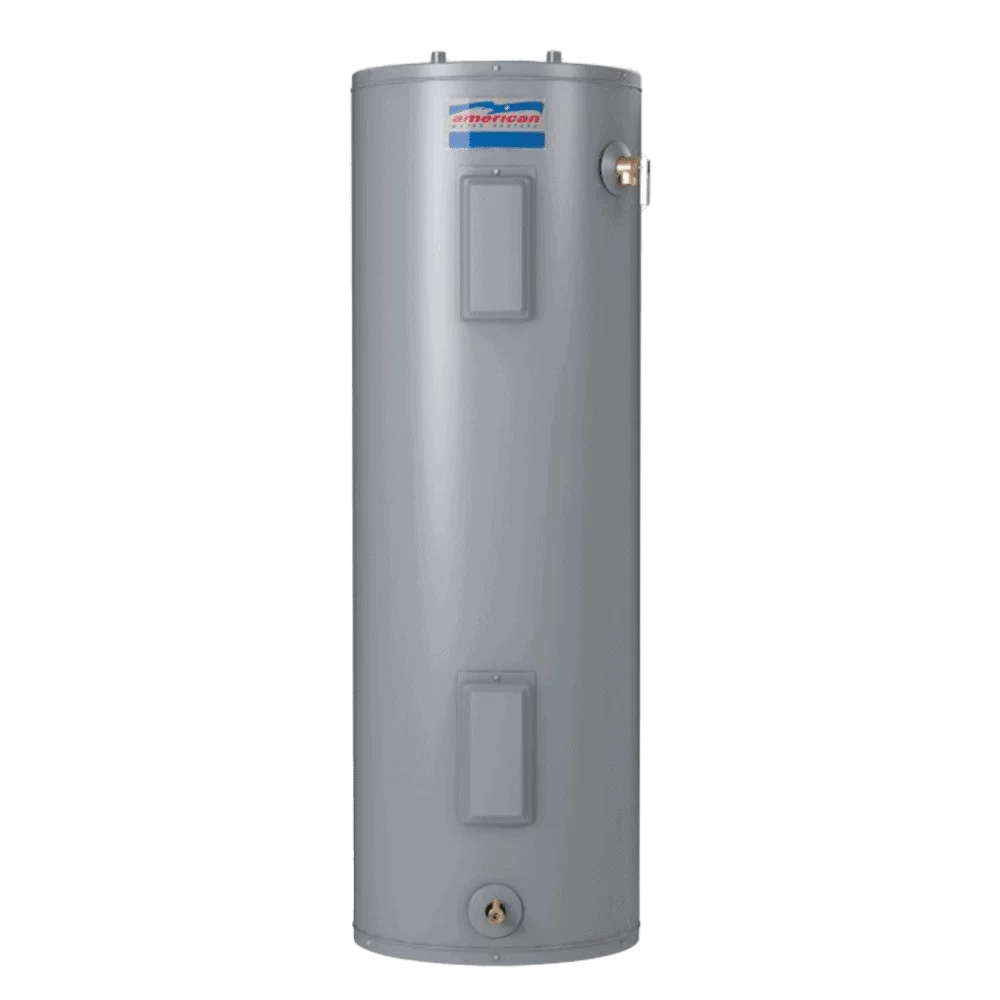
Water Heater Repair in Dubai
5. Professional Water Heater Installation and Emergency Replacement Services
While EmirateFix Center excels in effective Water heater repair, there are times when replacement is necessary. If the comprehensive Geyser repair cost exceeds the long-term value of your unit, Water heater replacement offers the best solution.
We offer seamless system replacement and new Water heater installation services across Dubai, ensuring you always have access to reliable hot water.
Expert Assessment for Water Heater Replacement
Our Certified technician team conducts a detailed diagnosis. We identify critical issues like severe tank corrosion, extensive pipeline leakage, or irreparable electrical faults that make continued use unsafe or inefficient.
If your unit requires frequent Emergency repair, our specialists recommend a modern, high-efficiency replacement, guaranteeing long-term reliability and lower energy consumption.
Comprehensive Water Heater Installation Services
We provide full-service Water heater installation for new properties, system upgrades, and complete replacements. Our services include both residential needs and large-scale Commercial Project Handling throughout Dubai.
Our Technician Dubai experts ensure compliance with all local standards. We specialize in integrating all types of systems, including instant water heaters, storage water heaters, and central hot water heater systems.
Emergency Replacement and Same Day Service Provision
Facing a critical failure, such as a burst tank resulting in a Leaking hot water cylinder or complete system shutdown? We offer swift Emergency replacement.
Our Emergency service provision includes rapid response and, wherever possible, Same day repair or replacement. We minimize the impact of your No hot water situation immediately.
We stock reliable units suitable for every need, facilitating a fast and efficient transition to your new system. This ensures minimal disruption to your daily routine when you need Hot water repair most.
6. Advanced Diagnostics and Expert Water Heater Fixing in Dubai
Our commitment to comprehensive service means tackling every detail that impacts your system’s performance. When you need reliable Water heater fixing, trust our highly Certified technician team for an Expert service across Dubai.
We use state-of-the-art diagnostic technology to ensure precise fault location, guaranteeing a lasting solution for your Hot water problem.
Diagnosis of Complex Hot Water Issues
We specialize in identifying hidden issues that cause frequent breakdowns, ensuring your system runs efficiently. Our services include detailed Diagnosis of Pipeline Leakage and resolving underlying structural faults within your system.
If you are experiencing No hot water, our team conducts thorough inspections to pinpoint the exact cause, whether mechanical, sediment-related, or electrical.
Hot Water Flow Restriction Correction
Weak pressure on the hot side often signals a restriction, not a heater failure. We perform professional Hot Water Flow Restriction Correction to restore full function.
Our technicians clean and repair internal pipes and valves to eliminate blockages and sediment. This restores optimal pressure and ensures strong hot water flow throughout your villa or commercial property in Dubai.
Resolving Sediment and Electrical Faults
A major cause of inefficiency and premature failure is sediment buildup. We offer specialized services for the Resolution of Sediment and Water Hardness Problems, maximizing your unit’s lifespan.
Furthermore, our team excels in Electrical Fault Troubleshooting (Water Heater), addressing issues with the thermostat, wiring, and heating elements quickly and safely to prevent overloads.
Guaranteed Repairs with Genuine Spare Parts
To ensure a permanent fix during any Water heater repair or Geyser repair Dubai service, we rely solely on genuine, top-quality spare parts.
This commitment prevents premature failure and guarantees the longevity and efficiency of your unit. We deliver exceptional quality and provide an Affordable price solution for long-term operational success.
7. Essential Questions and Answers on Water Heater Repair in Dubai
Is emergency water heater repair available 24/7 in Dubai?
Yes. EmirateFix Center provides immediate and reliable Emergency Water Heater Repair Services 24 hours a day, seven days a week, across Dubai. This Emergency Service Provision (24-Hour Availability) ensures you are never without assistance.
We guarantee a rapid response time, often reaching your location within 30 to 45 minutes, to address critical faults like severe Leaking hot water or a complete system failure leading to No hot water. Our goal is minimizing water damage and restoring your Hot water service immediately.
What types of water heater problems do your certified technicians fix?
Our Certified technician team is highly trained to diagnose and resolve all Hot water problem issues. We address common water heater problems including faulty thermostats, electrical overloads, and flow sensor issues.
We specialize in complex Water heater fixing, such as repairing pressurized Hot Water Cylinder leaks, solving severe Resolution of Sediment and Water Hardness Problems, and comprehensive Electrical Fault Troubleshooting (Water Heater). We ensure every fix provides an Expert service and is permanent.
Do you handle central, electric storage, and solar water heater repair in Dubai?
Absolutely. We provide specialized Water heater repair for all major systems. This includes standard electric storage units, modern tankless or instant water heater repair Dubai systems, and complex centralized boiler units.
We are experts in Residential and Commercial Project Handling, including complex central water heater repair Dubai and specialized services like solar water heater repair Dubai and villa water heater repair Dubai. Our expertise covers the entire range of hot water systems in Dubai, United Arab Emirates.
How do you ensure quality and lasting repairs?
Quality assurance is paramount for all our Repair Dubai services. We employ the latest diagnostic technology for precise fault location, guaranteeing a lasting solution rather than a temporary fix.
We only use genuine, top-quality spare parts for all repairs, including element replacement or Hot Water Cylinder fixing. This commitment ensures safety, longevity, and provides you with an Expert service at an Affordable price.
What is the typical Geyser repair cost?
The Geyser repair cost varies based on the required service. Minor issues, such as simple thermostat adjustments or sediment flushing, incur lower costs.
Major repairs, including element replacement, Hot Water Cylinder repair, or Emergency replacement, require a comprehensive assessment. Our Certified technician provides a transparent, detailed quote immediately after completing the initial diagnosis.
How often should I schedule water heater maintenance?
We recommend scheduling Water heater maintenance Dubai annually. Routine maintenance is crucial for preventing sediment buildup and checking the anode rod to extend the life of your unit.
Crucially, for gas Hot water heater units, we perform vital Carbon Monoxide Safety Testing. Regular maintenance ensures safe operation and maximum efficiency for your system, avoiding unexpected faults.
We also offer a Same day repair guarantee for urgent non-emergency issues identified during maintenance checks.
8. Emergency Water Heater Repair Services: 24/7 Availability
When you experience a sudden failure, immediate action is crucial to minimize damage and restore comfort. EmirateFix Center provides dedicated Emergency Water Heater Repair Services across Dubai.
We guarantee Emergency Service Provision (24-Hour Availability), meaning our expert team is ready to respond day or night. This rapid deployment capability ensures that urgent issues like Leaking hot water or total system failure are addressed immediately.
Our commitment to speed means we strive for a quick response time, often reaching your location within 30 to 45 minutes of your call. We focus on providing efficient, reliable Emergency repair to ensure minimal disruption and prevent extensive water damage to your property.
9. Diagnosis of Common Hot Water Problems
Our certified Technician Dubai team specializes in diagnosing and fixing the most frequent causes of a Hot water problem in the region. We handle everything from minor faults to major system failures, ensuring a permanent fix.
Common issues we resolve include experiencing No hot water, addressing extreme water temperature fluctuations, and correcting low pressure. We are experts in the Diagnosis of Pipeline Leakage and resolving issues related to the Hot Water Cylinder.
A significant focus is the Resolution of Sediment and Water Hardness Problems, which are common in Dubai and can severely reduce efficiency. We also swiftly handle Electrical Fault Troubleshooting (Water Heater), flow sensor issues, and thermostat malfunctions causing inefficient operation.
10. Comprehensive Water Heater Repair Coverage in Dubai
EmirateFix Center offers specialized Water heater repair services for every type of system used in Dubai, ensuring that no matter your setup, we have the expertise required. Our services cover residential, commercial, and industrial installations.
We provide expert Electric water heater repair Dubai for standard storage tanks, alongside specialized services for instant water heater repair Dubai (tankless units). We also offer complex Central water heater repair Dubai and villa water heater repair Dubai, including large boiler systems.
Our expertise extends to alternative energy systems, including comprehensive solar water heater repair Dubai. For all systems, we address major faults such as burner issues, pump malfunctions, and complex circulation problems, guaranteeing high-quality Geyser repair Dubai.
11. Certified Technician Expertise and Quality Assurance
Quality Water heater repair begins with highly skilled personnel. EmirateFix Center employs only rigorously trained, Certified technician professionals who possess the necessary Professional Certification and Expertise to handle all systems safely and effectively.
We specialize in Residential and Commercial Project Handling, providing the same high standard of Expert service whether you require routine Geyser maintenance Dubai or a complete Emergency replacement.
Our technicians prioritize speed without sacrificing quality. We ensure accurate diagnosis and precise repairs, managing complex issues efficiently to deliver reliable Hot water service throughout Dubai.
12. Advanced Diagnostics and Genuine Spare Parts for Permanent Fixes
To ensure guaranteed Same day repair and long-lasting solutions, we utilize the latest diagnostic technology. This advanced equipment allows for rapid and accurate fault finding, essential for efficient Water heater fixing Dubai.
When parts are required, we only use top-quality, genuine spare components for all Water heater replacement and repair tasks. This commitment ensures the longevity and safety of your system, preventing repeat failures.
We also strictly adhere to safety protocols, including comprehensive checks and Carbon Monoxide Safety Testing for gas units, ensuring your system operates safely and efficiently at an Affordable price.
Summary of Your Water Heater Service Partner
For reliable, professional Water heater repair near me in Dubai, trust the expertise of EmirateFix Center. We combine Professional Certification and Expertise with dedicated 24/7 services to resolve any Hot water problem quickly and efficiently.
Whether you need water heater fixing Dubai, routine Geyser maintenance Dubai, or a full system upgrade, our Technician Dubai team is ready to provide Expert service at an Affordable price.
We guarantee Same day repair for all urgent calls, covering everything from Leaking hot water to total system failure. Contact us today at 0543747022 or info@emiratefix.com for guaranteed service and immediate Emergency water heater support.
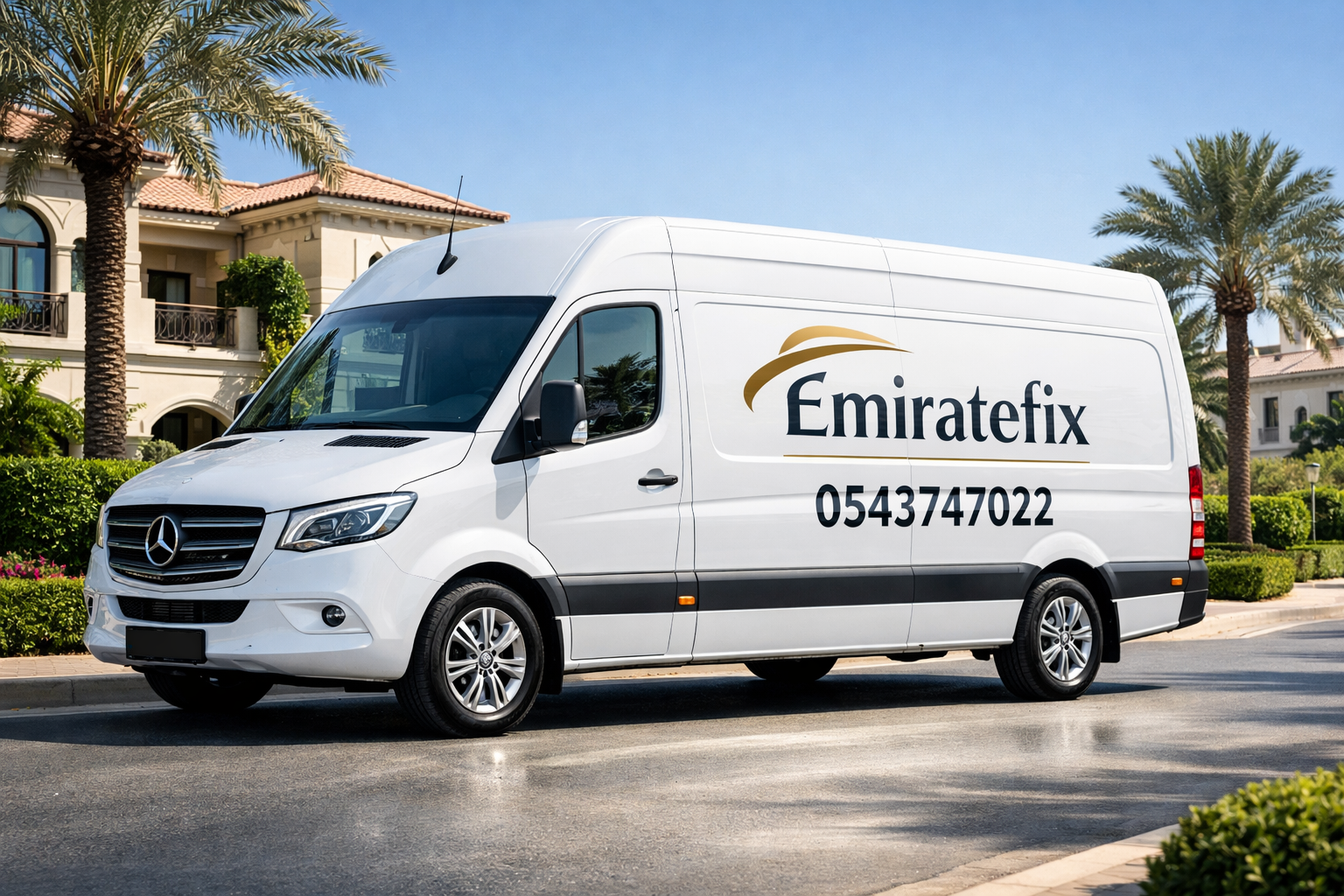


Comments (0)
[…] Chiller and cold room repair in Sharjah […]